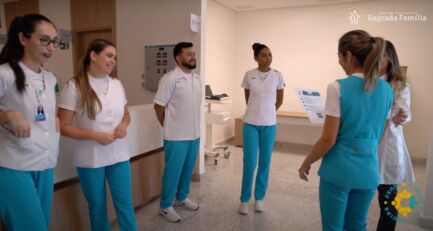
Jenny Rudolph, PhD, Executive Director of the Center for Medical Simulation, will give the Annual Heller Lecture at the Massachusetts General Hospital for Children (MGHfC) Pediatric Medical Education Summit. This lecture will take place on Tuesday, September 26th, 2017, prior to the summit, which runs from 9:00 AM to 5:00 PM.
Dr. Rudolph’s lecture is titled, “Helping without Harming: Feedback Conversations that Improve Performance and Relationship.” It will be presented at the O’Keefe Auditorium at the Massachusetts General Hospital.
Dr. Rudolph will also be presenting the keynote presentation at the medical summit. Her keynote, titled “What Were They Thinking? Autonomy, Communication, and Control in Supervised Patient Care.” This presentation will take place at 9:30 AM on the 26th, immediately following the introduction to the summit.
Below is the abstract for Dr. Rudolph’s keynote:
“You’ve got a great plan for bolusing up the hypotensive kid when your attending comes in, freaks out and takes over the management of the patient.
You’ve been paged over to support the resident in managing the hypotensive kid. You ask them for their plan and they tell you what’s wrong with the kid, and ask you what to do. Incredulous that they haven’t thought out a plan, you step into get some fluids onboard as quickly as possible.
What the heck were they thinking!?! This normal response to colleagues when they don’t understand the situation the same way we do gets in the way of establishing or supporting autonomy in patient care at crux moments. It’s natural to judge, to assume our approach is best, and condemn “that idiot” for their wrong-headed tactics. In fact, a host of research says we are programed to respond with exasperation and negative judgment. Expert-level clinical or precepting performance, however, requires feedback, coaching, and collaboration. We have to transform the energy behind our righteous indignation into communication with and curiosity about our colleagues. Paradoxically our vexation, when channeled into a combination of good judgment plus curiosity can boost learning in critical care. Using research on speaking up and interprofessional communication, this workshop illuminates a starting point for managing ourselves and conversations at the autonomy boundary.
Learning Objective 1
- Recognize that indignation at other people’s actions is a natural reaction but derails efficient co-creation of a preceptor-trainee care plan
Learning Objective 2
- Demonstrate using the conversational algorithm to manage “autonomy glitches”: Preview, “I saw…,” “I think…” “I wonder…” listen, to share and elicit thinking;
Learning Objective 3
- Contrast avoiding negotiation versus co-creating a management plan that allows for maximum appropriate autonomy.”
We look forward to seeing you there!

